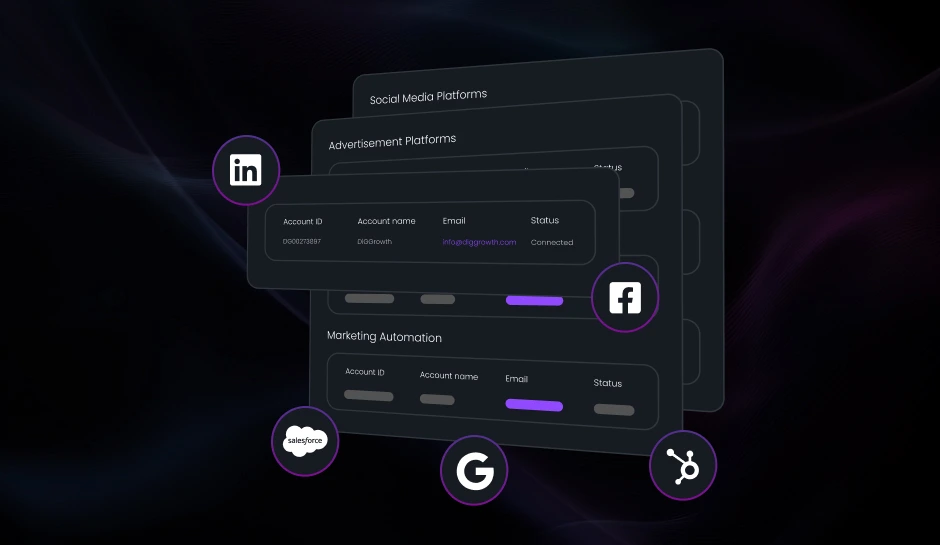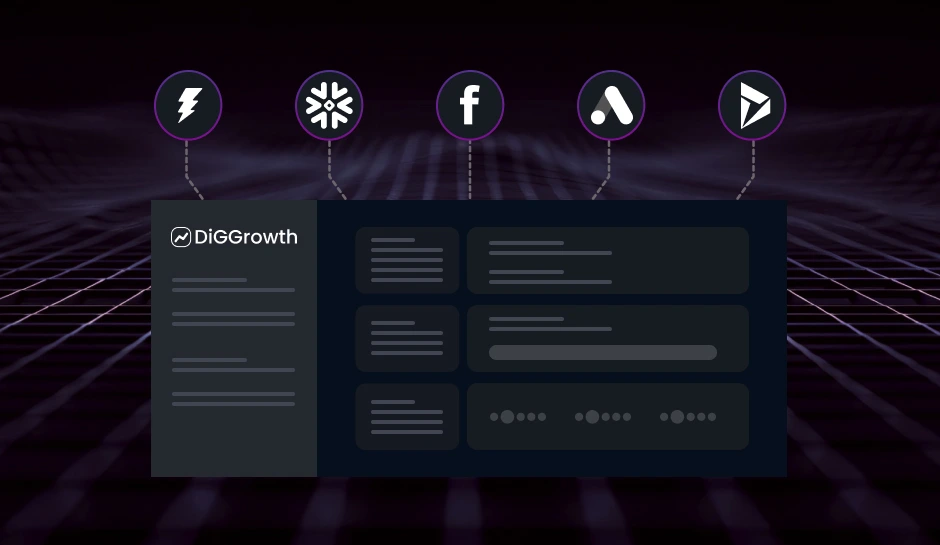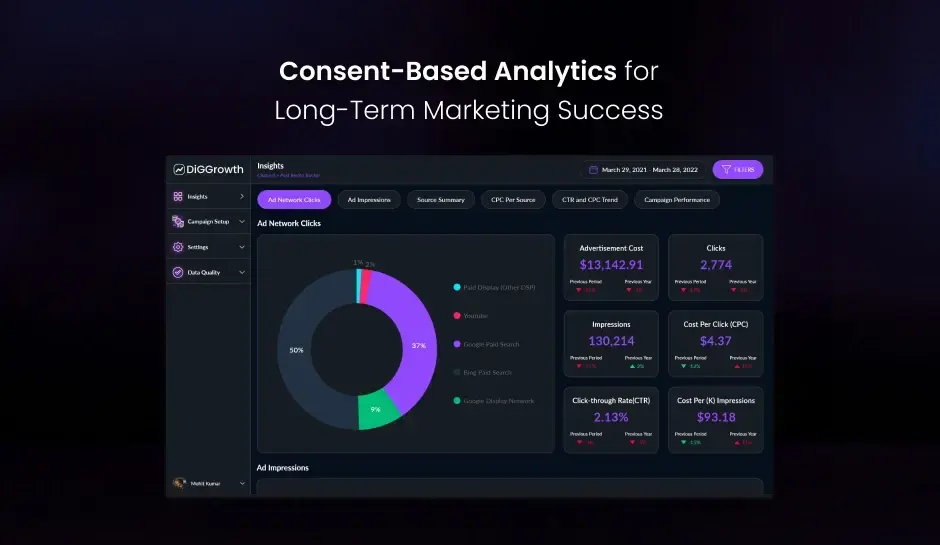Join us to explore how AI tools can enhance marketing productivity and public relations. Industry expert Jonathan Mest, CEO of Just Reach Out, shares real-world examples and insights on AI’s future in search, decision-making, and ethical considerations. Learn how AI can augment your skills, not replace them, helping you focus on storytelling and meaningful connections. Don’t miss this chance to learn from John’s expertise and embrace AI’s practical potential!
By tuning in to this episode, you can expect to come away with an understanding of:
- Harnessing AI for Marketing Success
- The Future of Public Relations with AI
- Personalization in AI-Generated Content
Featured Speakers:-

Jonathan Mest
CEO - Just Reach OutJonathan Mest is a seasoned business professional passionate about the intersection of technology, business, and revenue generation. Based in St. Pete, Florida, and originally from Philadelphia, his background blends applied mathematics with diverse startup experience, including sales, customer success, and product management. With a developer background, he maintains technical acumen while focusing on business growth. He's currently involved with a PR software company leveraging AI to revolutionize the industry.

Harshika Chadha
Lead Product Manager - DiGGrowthHarshika is a seasoned product manager with a passion for business transformation, design thinking, technology, marketing trends, SaaS security, and human-computer interactions. What interests her most is the intersection of these fields, which is why she stays on top of the latest industry insights to uncover strategies for success in today's dynamic business landscape.
More From Our Content Repertoire
- Unveiling the Power of Marketing Intelligence Data: A Catalyst for Informed Decisions
- How AI will EEAT traditional SEO?
- The Human Touch 2.0–Leveraging AI for Deeper, More Meaningful Sales
Transcript
0:02:
Hello and welcome everyone to another episode of the revenue Focused marketer where we discuss anything and everything related to marketing as well as data.
0:11:
today we have a very special guest with us.
0:14:
His name is John and John is currently the CEO of Just Reach Out.
0:19:
it’s been a great pleasure sort of learning about the work that he does, and I’m really excited to welcome him today.
0:26:
Welcome, John.
0:27:
Thank you so much for having me.
0:29:
Yeah, thank you for joining in and for our guests here today, maybe you can help, you know, give a small introduction about yourself just so that they get to know you better.
0:40:
Absolutely.
0:40:
, yes, so my name is John Nest.
0:43:
I’m currently based in St.
0:44:
Pete, Florida, originally from the Philadelphia area.
0:47:
Yes, so my background, I was always a kind of a math engineering person, studied applied mathematics in university, came out, spent a couple of years on Wall Street, and then bounced around to different startups wearing many different hats, everything from sales engineering to to pure sales, customer success, product, you name it.
1:04:
I’ve done it, started as a developer, I never lost my technical touch, but you know, much more focused on the business and revenue side of things today.
1:11:
, and that leads me to just reach out where we are a PR software that helps individual businesses, solopreneurs, nonprofits, large businesses do their own PR.
1:22:
We’ll talk a little bit more about this, but, public relations is one of those industries that was kind of very old school, like fancy New York office agency type old school, and AI is upending all of that, and we’re really excited about what we’ve built and what we’re we’re we bring to our customers on a day to day basis.
1:36:
Mhm.
1:37:
Wonderful.
1:38:
Thank you so much for the quick introduction.
1:40:
So I think you’re gonna mention about artificial intelligence and I think it’s no longer just a tool, right?
1:46:
It’s really influencing the way we make decisions, form opinions, and even interact with the world around us.
1:52:
kind of mention about your, you know, PR platform.
1:55:
So I guess we can just start off by seeing what, what are you currently seeing that is happening and how are people really making decisions based on AI being available and write up their resources.
2:10:
Yes, so it’s funny because There’s a lot of industries out there that, you know, work very well in a person to person, very relationship building type of kind of relationship.
2:20:
And so that is how the media has always worked.
2:23:
So if you wanted to get a write up in The Wall Street Journal or The New York Times or the BBC, it’s know somebody that worked in that newsroom and then reach out to them, get them interested in your story, and have them, you know, write about you.
2:33:
And that was traditional media and that still works.
2:36:
So there’s still a possibility to do that, but unless you’re like Disney or Nike or a very large brand, it is very hard to do that.
2:42:
, so there’s all these small businesses that always struggling to compete against the large ones because they just didn’t have access to that kind of money or that kind of relationship or resource to get themselves media.
2:53:
So they’ve always been kind of fighting that uphill battle.
2:56:
Now AI in particular, but technology in general really helps kind of bridge that gap between what a small business can do and what they can earn in the press.
3:04:
And so really for us, the relationship is.
3:08:
If you want to tell a good story and you have a good story to tell and it’s available to you know, the people will care about it, the media should tell it.
3:14:
And it doesn’t matter that you’re a smaller company than say Disney or Nike, you should be able to get your story out there if if people will care about it.
3:22:
And so that really is kind of our motivating force.
3:25:
So yes, we have a software that helps kind of bridge that gap and technologically we can talk more about how that all goes, but really it’s about storytelling.
3:31:
It’s really about building a narrative and thinking through what that marketing can be.
3:34:
That’s that’s just traditional marketing.
3:36:
And throughout all that, yes, of course we have built a great software that has AI enabled and helps you kind of really kind of get up there and I’d love to.
3:43:
more about that in detail, but I think the idea here is that if you have a good story to tell, it doesn’t matter if you’re the small guy or the big guy.
3:49:
You should be able to tell that story to the media because people care and people will read about it and that’s what really matters today.
3:54:
Definitely.
3:55:
I think a lot of the times you know comes off as a hesitation because you’re not that big yet.
4:01:
You kind of refrain from being able to, you know, put yourself out there.
4:04:
But I think AI is kind of changing the way you can do that now.
4:08:
But there’s a lot of sort of, you know, criticisms people are also sort of facing when it comes to the use of AI.
4:14:
Do you personally think it is enhancing critical thinking or is it kind of declining how deep thinking and problem solving used to work before?
4:22:
, I actually think AI is an amazing tool to help augment what you’re already doing.
4:26:
And so I love the example of brainstorming.
4:30:
So this is a very classic thing that everybody does.
4:32:
You get in a room with a bunch of your teammates and you think about what can we do for our next product sprint or what can we do for our next, you know, business cycle, what are we going to do to build our company.
4:41:
And so you’ll sit in a room for 2 days and you’ll think about you write down 20 ideas and maybe you’ll get down to the 5 most important ones and then you’ll try to execute on some of those ideas.
4:50:
Well, that’s great, and that nothing, no AI is going to replace that.
4:53:
What AI can do is that you, if you sit in the room for a day and you think about 20 great ideas, you then feed those ideas into the AI and say, Can you give me 100 more?
5:02:
And the AI, unlike you who might get tired and want to have lunch or might want to go take a nap after that session, the AI does not get tired.
5:09:
And so you can use the same team and their critical thinking skills and everything they know about your business and their context.
5:14:
You can come up with 20 great ideas, and then you give those 20 ideas to the AI and say, I guess I’d.
5:19:
Be 100 more and you’d be amazed at how the AI will then spit out for you more and more interesting ideas related to that or kind of use the information you’ve given to them to give you those ideas.
5:28:
And the best part is you read those 100 and you say actually these 50 don’t make sense at all, but these 50 are really good.
5:33:
Give me 50 more similar to this, and you kind of keep iterating and going through that process.
5:37:
So you, you as a human still have to think.
5:39:
You still have to analyze and critically think about what makes the most sense for what you’re trying to do, but the AI doesn’t get tired.
5:45:
The AI will continue to give you more and more kind of insight.
5:47:
You can give it.
5:48:
Feedback and it’ll give you more and more.
5:50:
So for us, we always think about is, is going to replace brainstorming?
5:54:
No, but does AI make brainstorming so much more effective?
5:57:
Absolutely.
5:58:
And that’s where we really think about things.
6:01:
I think it makes sense, you know, like you know AI has been something that’s incorporated in my day to day life.
6:07:
But as a CEO, like how do you kind of incorporate, are there any specific tools that you’ve been using, you know, and you recommend other sort of small business owners or CEOs to kind of look into?
6:18:
Sure, there’s a lot of kind of, you know, just personal type of tools that could be like more like an AI agent that can help you kind of think through.
6:24:
For me, I wake up every morning as a business owner and think about what am I going to do today.
6:28:
I have 800 things I need to be doing.
6:29:
How should I prioritize my time?
6:31:
Well, there are great AI agents that can help you do that, potentially to help you kind of think through what is on my calendar today, what are my tasks I need to get done?
6:38:
What should I focus on to get me to the next day and to the next hour, really?
6:42:
So there’s things like that, but those are kind of productivity type tools.
6:45:
Those are helpful, but really they’re only helpful if you.
6:47:
Use them like really effectively for us we use AI for information and for kind of building out our processes and what we think about kind of doing on a day to day.
6:57:
And so for us as a team, we enter in kind of here’s what we want to do for the next quarter, for the next 6 months, for the next year.
7:04:
We need to think about what are the steps to get us there.
7:06:
What are we going to need to work on to get through that.
7:08:
Again, that’s a human.
7:09:
That’s like us as a team digging through, but then the AI can help think, OK, well now that we want to accomplish this and this is what we need to get done, how do we like Think about the next week, the next month, how do we prioritize our time, how do we segment out like what we should need to be working on, how many hours it’s going to take.
7:23:
The AI is actually really good at kind of helping establish some of those things, and that doesn’t need a fancy tool.
7:28:
Any of the AI agents you want to talk to or any of the chat interfaces are pretty good about those kind of productivity hacks as well.
7:33:
For us, I wouldn’t recommend any specific tools per se.
7:36:
I think just like using the AI and again even the interfaces like a chat GBT or a Gemini or a cloud can help really kind of simplify and kind of augment you as a productivity person, but really.
7:45:
About like helping you understand, organize and kind of build out your plans for for the next like I said, quarter.
7:52:
So the way I understand it’s like, you know, you can utilize AI, but you’re still gonna like, you know, need you as a human, your ability to kind of utilize and make the most out of it.
8:02:
So you know, a lot of people are also chiming in like sort of some of the ethical implications that come with AI influencing decision making, and I would just love to hear your thoughts on, you know, what you see happening in the industry currently.
8:15:
This is tricky.
8:16:
So for us, we don’t really do or use anything, at least personally, with the ad that would kind of be unethical and something that I think would be kind of in a wrong way.
8:26:
There are always bad actors out there and there are ways to use AI in a way that is kind of like wrong or like you said, it could be considered unethical for us.
8:33:
We’re really using it to kind of enhance and build upon what we’re already doing as a team.
8:37:
So we maybe this is like wrong for me to say as the CEO of an AI forward company, but like I don’t think like AGI is anywhere close to where we are right now, and I think we have plenty of time to kind of figure out and get to what happens with the AI does get too smart.
8:51:
Right now for us, AI is a great productivity tool.
8:54:
It is great for helping efficiency.
8:56:
It is great for helping effectiveness.
8:58:
We use AI.
8:58:
In a way that really kind of builds upon what we’re already doing as people and as a team, company, and we’re just helping it, using it to help us grow and help our customers do even more with less.
9:07:
And so again, not to get into our product here, but our price point is significantly lower than that of our competitors because again we’ve added this efficiency and effectiveness into our tool.
9:15:
We don’t have to charge as much as others because again our customers are really happy with what they’re getting.
9:19:
And so for us it’s really about kind of using the AI to build upon the human aspect of our lives.
9:29:
And what would your thoughts be for people that are still kind of, you know, hesitant in kind of making use of AI because it is something that, you know, is pretty out there that are, I think we talked about this before, like, you know, it’s the hype right now.
9:42:
Everybody is talking about AI and kind of like integrating them into their tools and like if they typically have a product that they have, they’re kind of, you know, moving towards AI incorporation.
9:52:
But what about people or like companies or industries that haven’t really, you know, gotten that exposure yet?
9:58:
How do you think they can kind of, you know, get on the wave and like what may be some of the first initial steps they can take to, you know, get to that point?
10:05:
So I’ll answer this how I talked to my mom about AI and my dad, who are like, they’re in their 60s, they’re not exactly most technology forward, but they read the news, they’re interested in like what and they know I work in it like what is so interesting about AI and why like they’re scared of it.
10:18:
Like why should I use it?
10:20:
And I always say do a little homework.
10:22:
Go read about like what the AI is doing, what the AI is right now.
10:25:
And so there’s some great resources for that.
10:27:
I mean, I’ll plug one useful thing is a great substack from an old professor of mine, Ethan Malik, who’s just excellent.
10:32:
It really breaks down at the fundamental level like what is AI, how does it work?
10:36:
Why should I care about it?
10:38:
What are some simple, easy ways I can use it in my day to day life?
10:40:
And then he gets more technical and he does get like way more advanced in it.
10:43:
But his simple he really simplifies down how AI.
10:48:
Works in a way that is really consumable.
10:50:
He actually wrote an excellent book about it too that I highly recommend.
10:52:
The idea here is that if you understand what the AI is and how it works and what it does fundamentally, I think people would be a lot less scared of it.
10:59:
I think what they would understand that it really is a useful tool to help kind of augment what you’re already doing, kind of provide extra extra context, provide efficiency.
11:08:
That is a really great kind of starting point for some that might be concerned about using AI is just read about it, learn what it is and what it does, and You might think to yourself, actually this sounds really nice.
11:18:
Like it sounds like it could really help me, and you’d be less scared and more kind of approachable approach to that.
11:23:
And then my second point of advice is just go try it.
11:26:
Chachi BT, Claude, like Gemini, Meta, these are all free tools, at least they have free tiers.
11:31:
Go on and try them.
11:32:
Just very simple things like I want to go out to dinner on Saturday night.
11:36:
I want Italian food.
11:37:
Where should I go?
11:38:
I live in this city.
11:39:
Like you can enter that into Google, but you’re going to get a lot of, I mean this is how the Google algorithm works.
11:43:
You can get a lot of sponsored.
11:44:
at the top and you’re going to get a lot of like Yelp and TripAdvisor and like people that pay a lot of money for SEO to kind of get at the top there.
11:51:
Now that’s not wrong.
11:52:
I’m not saying that the Google search is wrong, but go into a chat GBT or into a meta AI and enter that same query, and then it’s going to give you kind of great results and then you can say, actually I only want this type of Italian food.
12:05:
I only want, I want to be like less than $20 per meal or whatever that might be, you enter in your information and you can iterate and talk to the AI.
12:12:
And then I’ll give you the#1,#2,#3, best choices for that that query.
12:17:
That’s a much more useful search tool.
12:20:
It’s a much more useful way of kind of figuring where you’re going to go to dinner than just going into Google.
12:25:
And so for anybody scared of AI, like, don’t change your whole life with AI overnight.
12:29:
Just figure out where you’re going to dinner on Saturday night using AI and I think you’d be really surprised at how nice it’ll be.
12:34:
Yeah, I think that’s a fun start and you know doesn’t seem that intimidating when you ask such questions.
12:40:
You can kind of see it make a difference.
12:42:
I know a lot of people that has also started, you know, using ChaiPD to like get medical answers and really incorporate it in different means and forms.
12:51:
In the beginning, you kind of mentioned how like, you know, you want to give everybody with your tool the opportunity to really scale.
12:57:
It doesn’t matter, like, you know, what the size of the company is.
13:00:
Do you think AI is that type of technology that can be used to, you know, really help small businesses finally compete with like large corporations?
13:09:
Definitely.
13:10:
So I think that if you always think about like why, why do bigger corporations like succeed, well, yeah, they have scale, they have, they have economies of scale that can work with more like different, you know, inputs, outputs, they just have like a way of kind of efficiency and operations that have been built out usually for many years.
13:25:
That’s why they are the large companies.
13:27:
Now if you’re a small upstart, you have advantages too.
13:29:
You don’t have the bureaucracy and the politics of a large company.
13:31:
You can move quickly, you can iterate.
13:33:
can change things that gives you an advantage.
13:35:
Now what AI can really help you do from that small company like side of things is that you can kind of utilize these tools to kind of really iterate and scale and grow faster and more efficiently than maybe a bigger company can.
13:47:
And so I said, for example, let’s think about content marketing.
13:50:
So if you are a large company, you might have a team of 10 people in your marketing team that are just focused on content and making sure everything out there about your brand is perfect.
13:57:
Now if you’re a small upstart, you might be just the founder, the CEO, and that your whole job is running the business and also content marketing.
14:04:
And so for you it might be really difficult to kind of spend your whole week thinking about what what kind of content should I get out there, why should, what, what, what kind of post should I put on my blog, how should I think about the best ways to, you know, get my brand out there that it’s going to be most effective?
14:17:
Great use for AI.
14:18:
As the AI.
14:20:
Hey, this is a little bit more about my business.
14:22:
These are my competitors.
14:23:
These are their blogs.
14:24:
I’m trying to build up my presence here.
14:26:
What type of topics should I be focused on?
14:28:
How, what kind of content should I be putting out there?
14:30:
Should it be customer testimonials?
14:32:
Should it be infographics?
14:33:
Should it be just long form blog posts that are highly technical?
14:36:
You can give all this information to AI and let them tell you what would be most effective to kind of.
14:40:
Word up there and help you kind of build your brand so when people log on and search this industry, you look just as big as your competitors.
14:47:
Now there’s a lot of like kind of questions up there about should you let the AI write all your content?
14:51:
I disagree.
14:51:
I don’t think you should.
14:52:
I think like human written content is really important for kind of promoting your business and making sure that it feels and sounds like you and it is your, your voice, planning out what you need to be.
15:01:
About printing out your topics, how often should be posting, all those types of things, great use for AI to kind of plan that out and be that like kind of marketing manager that you don’t have and you can’t afford because you’re a small business.
15:10:
And so there’s really great ways to use the AI that are kind of again productivity hacks and ways you can kind of improve your efficiency without, you know, having to write all your content and kind of might be a little cheat code you don’t want to use because again.
15:21:
People will see right through that and then they’ll know.
15:24:
Definitely.
15:25:
I think a big aspect that you kind of touched upon here is like personalization.
15:30:
Sometimes like what I’m seeing with like the content that I’ve currently been reading is like a lot of it seems very automated, even some of the marketing emails that you started, you know, receiving gets kind of like.
15:42:
It’s not personalized.
15:43:
It kind of like you can tell it’s AI generated.
15:46:
So, you know, what might be some of your like tips or tricks that you know, one can use like while leveraging AI but kind of still making sure there’s some level of personalization that people still wanna, you know, tap into you like use you and like, you know, use your product.
16:03:
Yeah, so just reach out, we allow our customers to use AI to help them craft content and narratives and emails to journalists, but we actually don’t allow you to just send that email out with the whatever the AI writes.
16:17:
So we actually force you to go in there, look at it, read through it, change things, edit things like you don’t like the AI is a great way to not be staring at a blank screen and just have that that fright of like what do I write?
16:28:
The AI will help you really nicely.
16:30:
Our case, craft a good pitch to the journalist.
16:32:
It’ll say, Hey, you should really kind of focus on these things first, then make your pitch, then a call to action, like just like any like writing style would be.
16:38:
Here’s kind of your script, your outline for how to write.
16:41:
But an AI can give ideas based on who you are, based on what you’re trying to do.
16:45:
Again, it can kind of generate ideas, help you think through what the narrative can be, but ultimately you write your email like you have to write that pitch because if you don’t, the journalist, the podcaster, whoever you’re reaching out to is going to know.
16:54:
They’re going to see it’s auto generated.
16:56:
They’re not going to want to respond.
16:57:
It it’s not going to be very helpful for you either.
16:59:
And so the AI is a great way to kind of think of ideas, generate kind of thoughts.
17:03:
It’s really good at that, and yes, it can write good emails, but actually we don’t let you do that.
17:08:
Like we want you to really focus in on like why I matter, like why my voice is important to this, and then I edit things, personalize it, and then send out your pitches.
17:15:
And so that’s really important to us.
17:17:
There are tools out there that just lets you just send emails to the AI and you never even know what they’re writing.
17:22:
It just sends them out mid mass.
17:24:
I’ve heard horrible feedback from those tools.
17:26:
It just doesn’t work.
17:26:
It’s not effective.
17:28:
And so for us it really is that personal touch.
17:30:
Does it take a little bit longer?
17:31:
Yes, it does, but that’s OK because again that little extra touch goes a long way towards in our case our open rates or response rates from our customers that you just reach out are just significantly higher than industry averages because again that personal touch is really important.
17:45:
Yeah, I love how you can also talk about like, you know, differentiation and like the.
17:49:
that you kind of make the user like actually go back think before just sending out an email generated by it.
17:56:
I think that’s very cool and kind of needed because it’s very easy sometimes to skip that process.
18:02:
Like it’s easier to just copy what’s written out there but like then you kind of use like what really differentiates you and that kind of voice that you know you kind of bring in.
18:11:
So I like the fact that you know you have a tool that can differentiate.
18:14:
That I think I’d love to kind of move forward and just understanding like, you know, where do you see the future of AI now?
18:22:
We’re already seeing a lot that is being done.
18:24:
I think there’s been a lot of talk in terms of like agentic AI kind of, you know, being the next big thing after Gen AI.
18:31:
So I just would love to get your thoughts on like, you know, being like, you know, the CEO of an AI company.
18:37:
Where do you think the trend is going?
18:39:
, yeah, so the future of AI, I think it’s going to go in many different directions.
18:44:
I think there’s a couple of things you mentioned like agentic AI, yes, for sure going to be continuing to grow as a as a popular tool for different people.
18:51:
I think the search models like the current chat models, excuse me, are going to be just continuing to improve and get better and better over time.
18:58:
I think for me the most exciting new innovation to the AI is going to be through search.
19:04:
So for a long time if you wanted to look up something, you go on Google, you search it, and you get your answers, and that’s just how it worked.
19:10:
It’s the 10 Blue links.
19:11:
It’s just been that way since basically the beginning of the internet.
19:14:
So Marc Andreessen actually talked about this recently, like he invented the 10 Blue links actually, and he just like thinks it’s just no longer going to be the case that that is like how the future of search works.
19:24:
It is funny coming from the guy that invented it.
19:25:
The idea here being that That if you go to Google and you search for a topic now, you’re not just getting, you know, the sponsored posts, the 10 blue links, the next page, like you’re getting an AI snippet at the top.
19:37:
You’re getting an AI answer from Gemini.
19:40:
Now that’s really interesting because Gemini might give you a very different answer than maybe even the top 3 results that Google would have normally given you.
19:46:
That’s OK because the AI is thinking differently than say traditional search.
19:50:
Would through their optimization model and SEO and all the things that people do to kind of hack Google.
19:54:
Well, I mean, the AI model is going to think differently about things in the traditional Google algorithm.
19:59:
Now, like I talked about earlier, if you want to find out what restaurant to go to on Saturday night, go to Chat GBT and ask it like for more information.
20:05:
You can have a conversation with the AI instead of just using keywords to type into Google.
20:09:
I think people love the idea of searching and.
20:12:
language, it’s really, really nice, and I think that’s going to continue to improve.
20:16:
So chat to OpenAI, put out their new search tool.
20:18:
There’s other things like there’s other products out there like Tavali and others that are kind of being created to help kind of bridge the gap between like traditional search and AI search.
20:26:
I think that’s going to continue to improve over time and it’s going to be really, really interesting to see how that affects how people, you know, use search and how they actually get information on the internet.
20:34:
, my team and I are also kind of on the side building another product here called ChatRank that is really helping you understand how your brand does an AI models.
20:43:
It’s different than, you know, traditionally like the traditional Google search and like the SEO people use to try to hack Google.
20:50:
Well, how do the AI models work?
20:51:
How, how are you ranking in Google when somebody does search for Italian restaurants in your city?
20:56:
Is your pizza place showing up as one of the results?
20:58:
How do you know?
20:59:
How to improve that.
20:59:
Like, the answer is we don’t really know, but we can at least at this point tell you how that works, and we’re building to improve upon like how you can actually improve your ranking and things like that in the chat models.
21:08:
But so for us, we really think that search and how people consume information on the internet is going to change fundamentally using AI, and that’s a much more near term thing.
21:16:
That’s like now 2025 versus, you know, maybe AGI in 2030 or 2040 or beyond whatever that happens.
21:24:
Well, thank you so much, John, for taking the time to connect with us today.
21:28:
I think this has been a very fascinating conversation, and I think just in the short time I know I have been able to learn a lot, so I hope like, you know, our listeners have too.
21:38:
Anything before we wrap up and like, you know, and I would love to hear where can people kind of learn more about your work and where can they kind of connect more about just reaching.
21:46:
Yeah, absolutely.
21:49:
Well, thanks so much for having me on today.
21:50:
I’ve really enjoyed speaking with you.
21:52:
These are topics that are just fun to think about because again, like we are an AI forward company, but we’re also like we believe in the power of people and the power of human thought.
21:59:
And so for us it really is the combination of how you as a smart individual can think about things and build your business and build up your capabilities and how you can use AI to help make that more efficient and effective.
22:09:
, so for us, if you ever need kind of help with your PR in the public relations, please check us out justreachout.io.
22:19:
we have a free trial for all of our new users really for us it’s about you don’t need to spend 100 $200 30,000 dollars a month for some fancy New York City agency to help you promote your brand.
22:28:
Nobody can tell your story better than you.
22:30:
You should do it yourself.
22:31:
We have a really simple, easy to use platform that you can go build your media lists, craft narratives, write pitches, and get yourself really strong media.
22:39:
through our platform.
22:40:
So again, that’s justreachout.io.
22:42:
And also I mentioned Chat Rank.
22:44:
This is something for us that we’re developing out here in the open.
22:46:
It is not a complete product yet by any means, but it’s out there and we’re just developing in public so people can give us feedback and we can learn more about how this works because again, this is such a new frontier for how like the AI models are thinking about brands and thinking about you.
22:58:
So go ahead, go to chatrank.ai.
23:01:
That’s C H A T R A N K.AI. Enter in your brands.
23:05:
It’s totally free.
23:06:
Enter in your brand’s name and check it out, see what we’re coming up with and see what the AI models think about your brand compared to your competitors and you know see if you might find a couple ways to improve yourself.
23:14:
That’s wonderful.
23:15:
Thank you again so much for your time and to our listeners.
23:18:
Thank you for joining in.
23:20:
If you enjoyed this episode, please be sure to share your thoughts on how AI is, you know, shaping your own thinking, and we’ll see you next time.
23:28:
Thank you.
23:34:
Thanks so much.
23:34:
So I’ll just pause.
23:34:
I’ll just stop.




